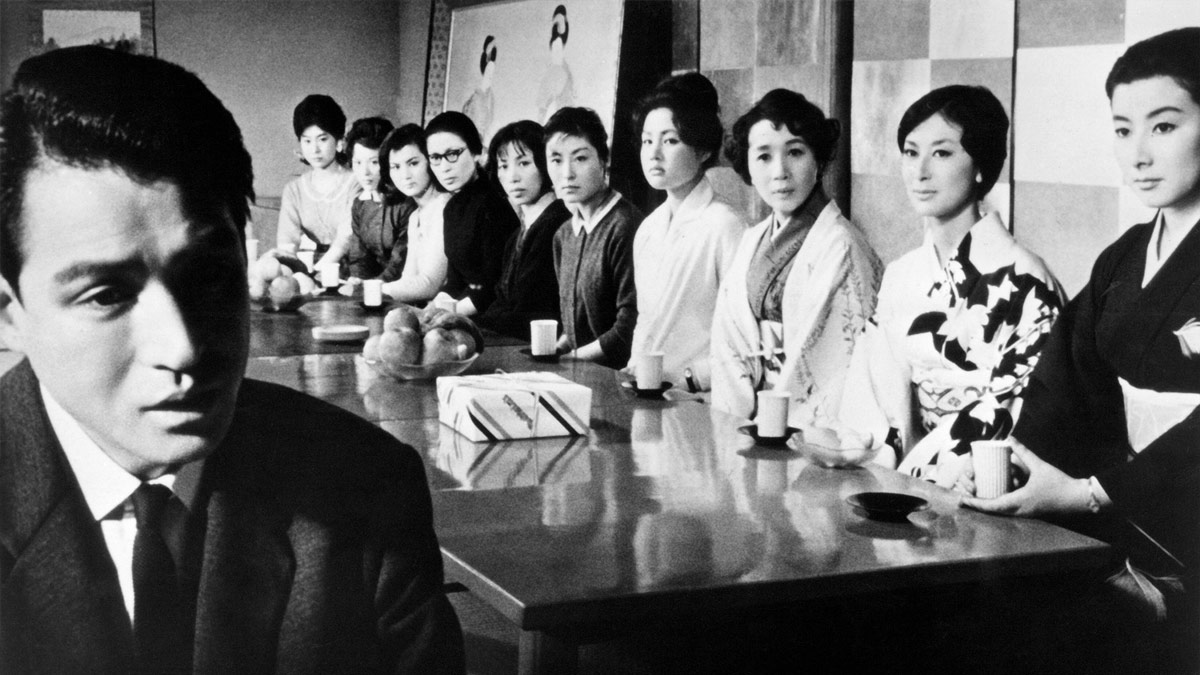
(c) Photofest / Getty Images
A glimpse of Kon Ichikawa's taste in the original "Ten Dark Women"
2017.08.19
“Ten Dark Women” synopsis
TV producer Kaze Matsukichi (Eiji Funakoshi) has nine mistresses in addition to his beautiful wife Futaba (Fujiko Yamamoto). The wives, mistresses, and ten other women all knew about each other's existence, but for some reason they were unable to leave Matsuyoshi. One day, a plan is hatched between one of his mistresses, actress Ichiko (Keiko Kishi), and his wife Matsuba to kill Matsuyoshi. It was a fictitious suicide to relieve his pent-up anger, but when Matsuyoshi hears about it from his mistress Miwako (Mariko Miyagi), he is not at ease. When he is worried and consults his wife Matsuba, she easily approves of the plan. So the two gather their lovers together and plan a Kyogen murder in which they make it appear that Futaba shot Matsuyoshi to death with a pistol in front of them. .
Index
-
"Ten Dark Women" made as a reward
-
Genesis of the television industry reflecting Kon Ichikawa's real-life experiences
- The strange relationship between Kon Ichikawa and Crazy Cats
"Ten Dark Women" made as a reward
I've always thought that what's strange, or rather incomprehensible, about movies is the fact that the masterpieces that the creators put so much effort into don't necessarily turn out to be masterpieces. Even for Kon Ichikawa, who has produced many masterpieces, there is a jinx that projects he was less enthusiastic about ended up becoming masterpieces.
Kon Ichikawa himself is actually not that great, whether it's in `` Flame '' (1958), a film adaptation of Yukio Mishima's `` Kinkakuji ,'' or `` Wildfire '' (1959), which was recently remade into a movie by director Shinya Tsukamoto. He was not enthusiastic about making it into a movie. The reality is that he became interested in it after being encouraged by those around him.
You might be thinking, ``What the heck?'', but on the other hand, if you fall in love with the original work too much, you may no longer be able to see it objectively and it may end up being a failure. Rather, great adaptations seem to come from strategizing how to make a movie out of an original work that was thought not to be suitable for a movie.
"Flame" (4th place in Kinema Junpo Best Ten in 1958), "Wildfire" (2nd place in Kinema Junpo Best Ten in 1959), and " The Key " (9th place in Kinema Junpo Best Ten in 1959) are among the most difficult literary films. Kon Ichikawa, who has been successful in making movies, won the 1960 Kinema Junpo Best One award with an overwhelming number of scores for ` `Otou '' (1960), originally written by Fumi Koda.
At the time, Kon Ichikawa was affiliated with Daiei, and as a kind of reward for ``Otou,'' he was told that he could create whatever project he wanted for his next project. Therefore, he and his wife, screenwriter Natsuju Wada, planned ``Ten Dark Women.'' In other words, it is not a strange movie that was made spontaneously, but rather a work that was made possible because the environment that was created up to that point allowed him to create the original and free-spirited movie he wanted to make.
Genesis of the television industry reflecting Kon Ichikawa's real-life experiences

